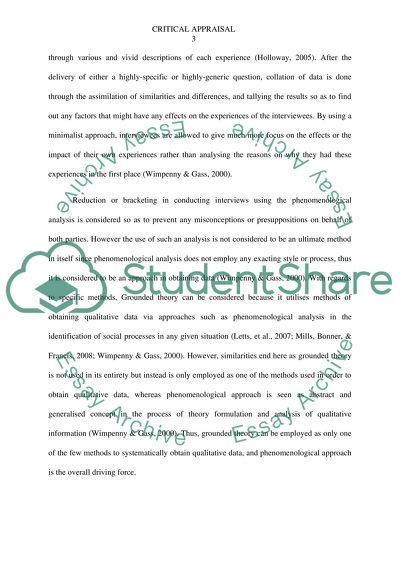Cite this document
(“Critical Appraisal of Qualitative Research Assignment”, n.d.)
Retrieved from https://studentshare.org/nursing/1485283-critical-appraisal
Retrieved from https://studentshare.org/nursing/1485283-critical-appraisal
(Critical Appraisal of Qualitative Research Assignment)
https://studentshare.org/nursing/1485283-critical-appraisal.
https://studentshare.org/nursing/1485283-critical-appraisal.
“Critical Appraisal of Qualitative Research Assignment”, n.d. https://studentshare.org/nursing/1485283-critical-appraisal.


